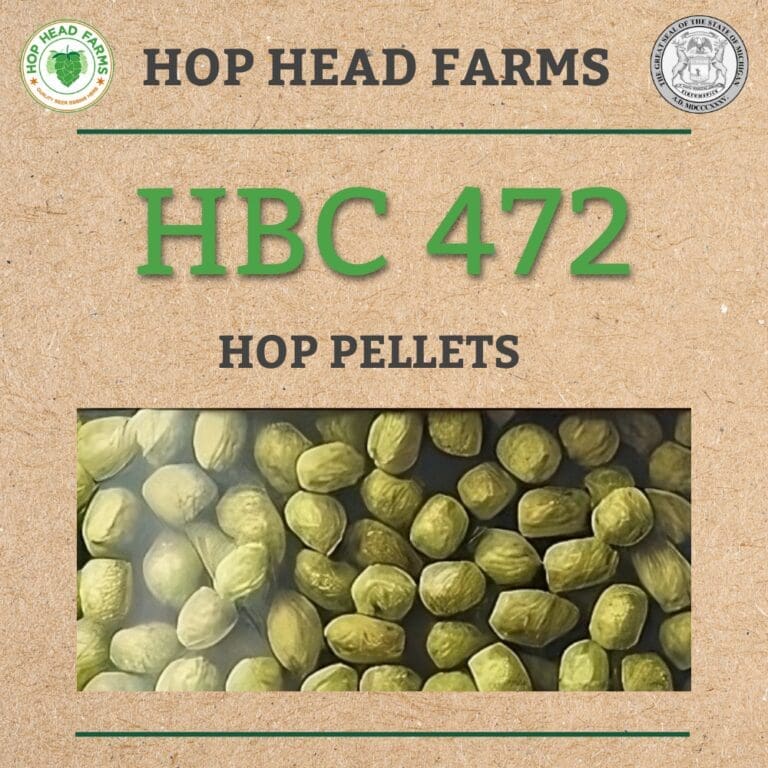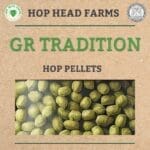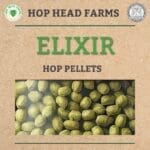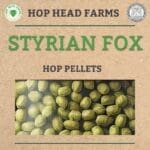HBC 472 hops are part of an experimental hop variety bred and developed through the hop breeding programs of Yakima Chief Ranches and Hop Breeding Company. As a result of open pollination, HBC 472 delivers a surprising fruity note alongside its distinctive coconut-woody character. This hop has captured the attention of brewers looking for something different, offering a range of flavors and aromas that can elevate the beer’s overall profile.
The HBC 472 hop variety has been described as an excellent addition to a brewer’s toolkit, particularly for those who aim to create beers with an edge. The combination of tropical fruit, vanilla, and woody aromas provides a unique twist that distinguishes this hop from others in the market.
Why Choose HBC 472 Hops for Brewing?
When selecting hops for brewing, flavor and aroma are crucial considerations. HBC 472 hops stand out due to their ability to impart a unique coconut character, complemented by earthy and woody undertones. This makes them particularly suitable for certain beer styles where these flavors can shine, such as barrel-aged stouts, IPAs, and pale ales.
Using HBC 472 in your brew can contribute to a rich and complex flavor profile, giving your beer a distinctive edge that appeals to adventurous palates. The hop delivers a surprising fruity note, which can work well alongside other flavors in a recipe, making it versatile for various beer styles.
What Are the Key Characteristics of HBC 472 Hops?
The aroma of HBC 472 is often described as intense and complex, featuring a mix of tropical fruit, coconut, and woody notes. This hop variety is also known for its floral and earthy undertones, which can add depth to the beer’s overall aroma.
The flavor profile of HBC 472 hops is equally impressive. Brewers have noted the coconut-woody character that dominates, with hints of vanilla and bourbon adding to the complexity. This makes it a perfect addition to recipes where a bold and distinctive flavor is desired.
How Does HBC 472 Influence Beer Styles?
HBC 472 has been embraced by brewers who want to push the boundaries of traditional beer styles. Its unique flavor and aroma profile make it a great fit for barrel-aged beers, such as stouts and porters, where the coconut-woody character can enhance the beer’s richness.
This hop variety also works well in IPAs, contributing to a tropical and fruity flavor that complements the bitterness typically found in these beers. The addition of HBC 472 can transform a standard IPA into something truly memorable, with a complexity that sets it apart from other brews.
Using HBC 472 Hops in Your Brewing Recipe
If you’re looking forward to experimenting with HBC 472 hops in your next brew, there are several ways to incorporate them into your recipe. Due to their unique flavor profile, these hops can be used in various stages of brewing, including dry-hopping, whirlpool, and fermentation.
For brewers interested in highlighting the coconut character, dry-hopping with HBC 472 can be an effective technique. This method allows the hop’s aroma to shine, infusing the beer with a distinctive coconut-woody note. Alternatively, adding HBC 472 during the whirlpool stage can help embed the hop’s flavors throughout the brew, creating a more balanced and integrated profile.
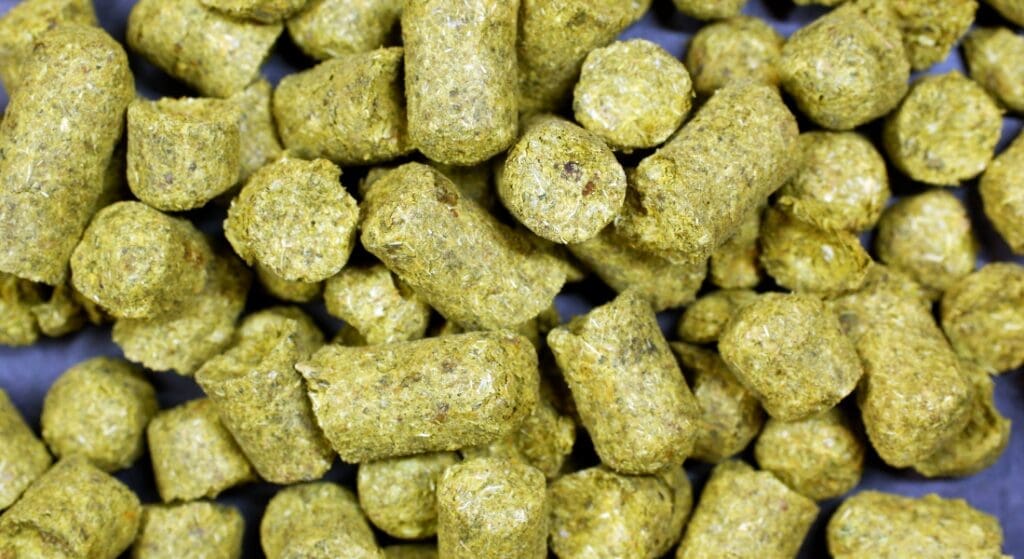
What Beer Styles Benefit Most from HBC 472?
HBC 472 is particularly well-suited for a range of beer styles, including IPAs, pale ales, and stouts. In IPAs, the hop’s tropical fruit and coconut flavors can complement the bitterness, creating a more rounded and complex beer. For stouts and porters, HBC 472 can enhance the beer’s richness, adding layers of flavor that make each sip a unique experience.
The versatility of HBC 472 also makes it a great choice for brewers looking to experiment with new styles or create innovative twists on classic recipes. Whether you’re brewing a barrel-aged stout or a bright and fruity IPA, this hop variety can help you achieve the flavor and aroma profile you’re aiming for.
The Role of HBC 472 in Craft Breweries
Craft breweries have been at the forefront of experimenting with new hop varieties, and HBC 472 is no exception. Its distinctive coconut-woody character has made it a favorite among craft brewers looking to create beers with unique and memorable profiles.
The popularity of HBC 472 in the craft beer scene can be attributed to its ability to stand out in a crowded market. With so many beers competing for attention, having a hop that delivers a surprising fruity note along with its distinctive coconut character can make a significant difference.
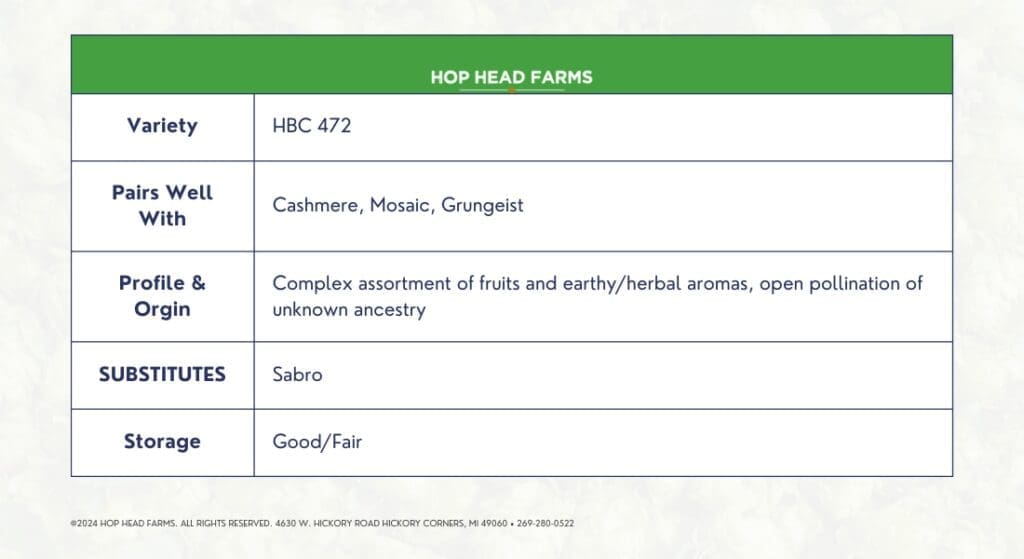
HBC 472 Hops Pairing and Substitutes
HBC 472 hops bring unique flavors like oak, coconut, and a touch of vanilla to your brew. For pairing, try Cashmere for its citrus and melon notes, Mosaic for tropical and berry flavors, or Grungeist for a floral and stone fruit twist. If you can’t find HBC 472, Sabro hops are a great substitute with similar coconut flavors and added hints of tangerine and tropical fruit.
The Technical Side: HBC 472’s Alpha Acid Range and Harvest Details
From a technical standpoint, HBC 472 has an alpha acid range that contributes to its bitterness, making it a good choice for IPAs and other hop-forward styles. The bitterness of this hop, combined with its complex flavor profile, can help create a well-balanced beer that appeals to a wide range of palates.
The harvest of HBC 472 typically takes place in the Yakima Valley, a region known for its quality hops. The conditions in Yakima contribute to the hop’s unique characteristics, including its intense aroma and flavor. Brewers interested in using HBC 472 should keep an eye on its availability, as this experimental variety can be in high demand.
How HBC 472 Was Developed Through the Hop Breeding Company
HBC 472 is the result of years of research and development through the Hop Breeding Company, a collaboration between Yakima Chief Hops and Haas. The hop was bred and developed as part of an experimental program aimed at creating new and innovative hop varieties that could push the boundaries of brewing.
The success of HBC 472 is a testament to the efforts of the hop breeding teams who worked to create a hop with a unique and desirable profile. The hop’s development through open pollination and its subsequent popularity among brewers highlight the importance of innovation in the brewing industry.
Future Trends: What’s Next for HBC 472 and Hop Breeding?
As brewers continue to experiment with HBC 472, it’s likely that we’ll see even more creative uses for this hop in the future. The versatility of HBC 472, combined with its distinctive flavor and aroma, makes it a valuable addition to any brewer’s toolkit.
Looking forward, the success of HBC 472 may inspire the development of other experimental hop varieties that offer unique and innovative profiles. The future of hop breeding is bright, and HBC 472 is just one example of how new hop varieties can transform the brewing landscape.
Get HBC 472 Hops from Hop Head Farms Today!
Elevate your brewing game with HBC 472 hops from Hop Head Farms. These hops are known for their unique coconut and woody flavors, along with hints of tropical fruit, vanilla, and bourbon. Perfect for adding depth to stouts, porters, and IPAs, HBC 472 can transform your beer recipes. Plus, you can buy in bulk, ensuring you always have this exceptional hop variety on hand. Order HBC 472 hops today and take your brewing to the next level!
Summary: Key Takeaways on HBC 472 Hops
- HBC 472 hops are an experimental variety developed through the hop breeding programs of Yakima Chief Ranches and Hop Breeding Company.
- This hop variety is known for its distinctive coconut-woody character and surprising fruity note, making it a popular choice for brewers.
- HBC 472 is particularly well-suited for IPAs, stouts, and barrel-aged beers, where its unique flavor profile can enhance the beer’s complexity.
- Using HBC 472 in brewing can involve techniques like dry-hopping and whirlpool, depending on the desired flavor and aroma.
- The popularity of HBC 472 in the craft beer scene is growing, thanks to its ability to stand out in a competitive market.
- The future of hop breeding is likely to see more experimental varieties like HBC 472, pushing the boundaries of what’s possible in brewing.

